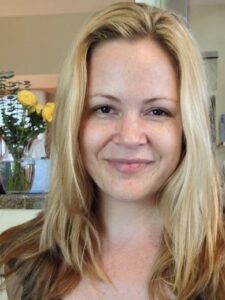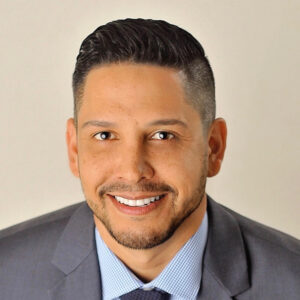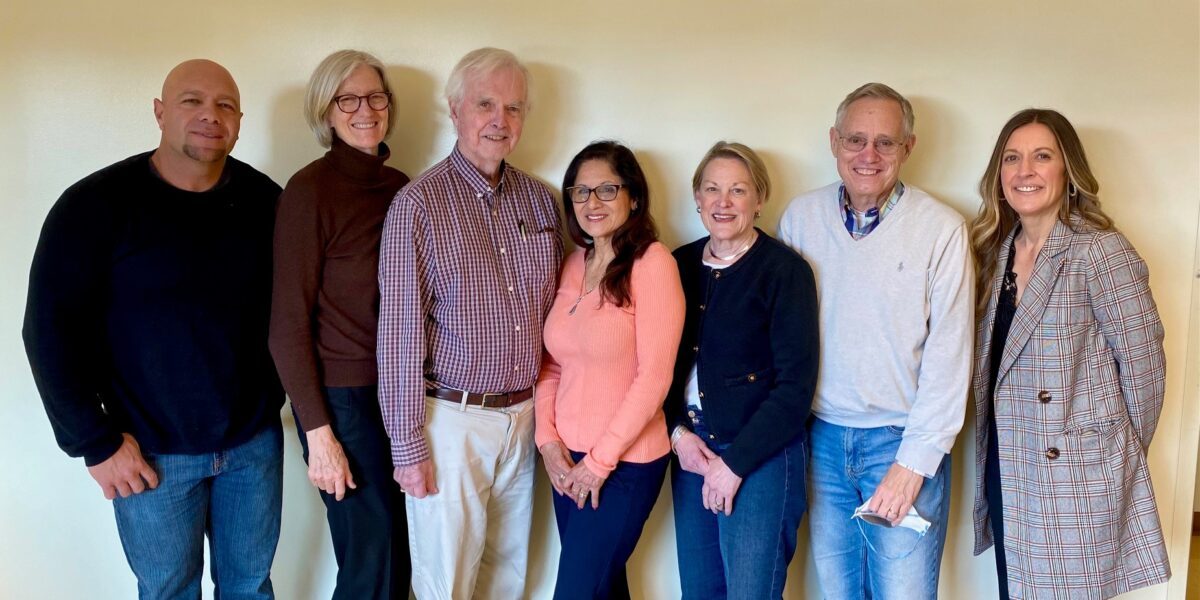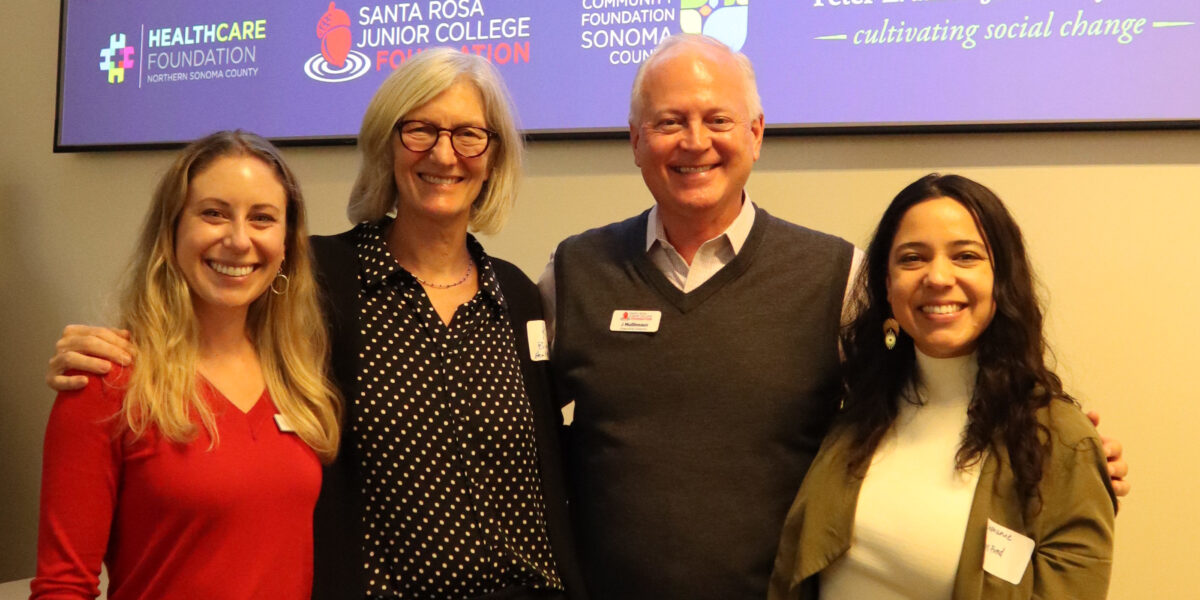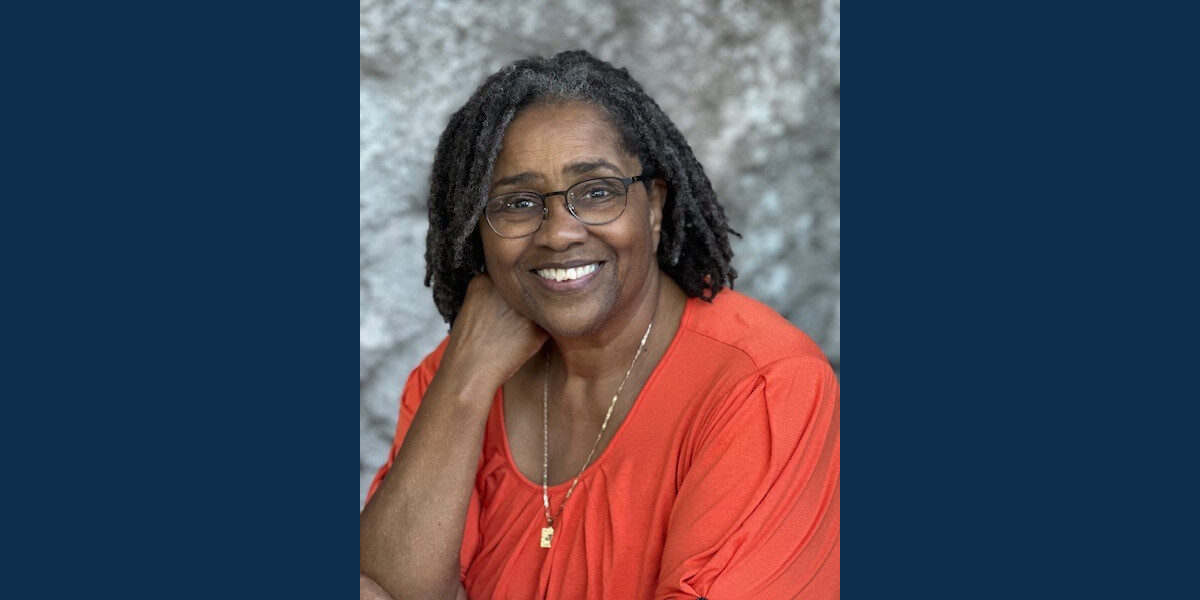
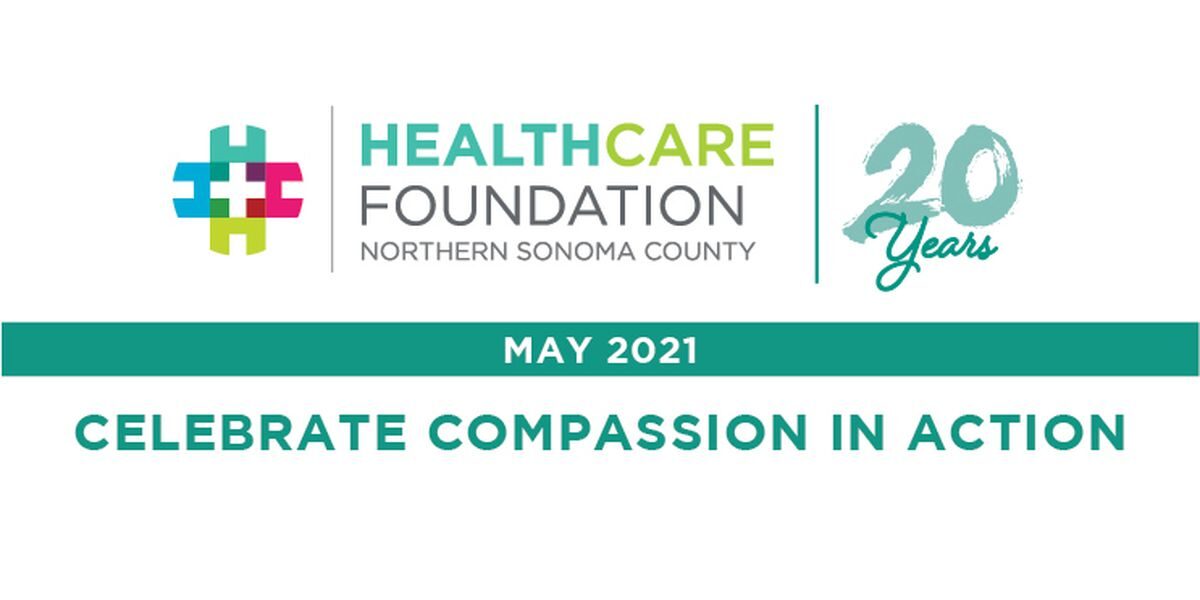
Celebrate Compassion in Action
For Mental Health Awareness Month, we highlight two of the mental health warriors on our board of directors. We also share progress on Sonoma County's COVID-19 vaccination efforts.
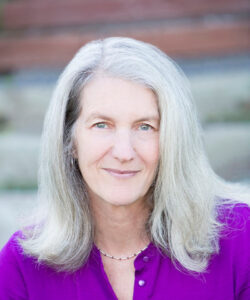
Dear Friends,
May is Mental Health Awareness month, which means it’s the perfect time to spotlight the Healthcare Foundation’s work in the area of mental health, and two of our Board members who are dedicated mental health practitioners. Six years ago, we identified increasing access to mental health services as one of the greatest needs in our region. Since that time, with your help, we have dedicated over a million dollars to improving mental health and de-stigmatizing mental illness. This issue celebrates compassion in action around mental health, as well as around vaccine outreach and education.
In 2018, with the help of several generous donors, we launched the Mental Health Talent Pipeline project, an innovative program that provides master’s degree scholarships to aspiring bilingual, bicultural mental health professionals. The vision for this program is to increase access to local mental health services for our Spanish-speaking community members who often have to wait up to a year for an appointment. To date, ten students have completed their studies while supported by the program, and are now practicing in our region. This month, we are proud to announce that the Healthcare Foundation, in partnership with USF Santa Rosa, will begin providing 100% of tuition for up to four candidates pursuing their MFT degrees who agree to conduct their traineeships in northern Sonoma County. When we talk about how to eliminate health inequities in our region, this program offers direct financial and practical impact toward that goal.
For Mental Health Awareness month, we also feature information on “The Story of Your Number,” a national campaign to raise awareness about Adverse Childhood Experiences (ACEs). Everyone has a story.
As far as the local vaccine story, we are in a new phase, moving from larger sites to mobile or “pop-up” clinics. Now, the most important groups to address are 16-24 year olds, and as of May 13, our 12-15 year olds. In this new phase, we need pop-up clinics in places where people live, work and go to school, along with trusted community members leading the efforts to address people’s concerns. Read below about grantee collaborations forged by the pandemic that we hope will continue to grow as the world opens up.
Lastly, please save the date for our August 28th CELEBRATE OUR FUTURE gala! It will be an in-person event at Healdsburg’s Mill District, featuring live music, surprise special guests and an online auction. Our key purpose this year is to raise money to help underserved community members recover from health and mental health issues exacerbated by the pandemic. Sponsor information will be available soon.
We thank you for your ongoing support, and look forward to celebrating our future together!

Kim Bender
Executive Director
P.S. Have you taken our Your Voice Counts survey yet? Please do! It only takes a few minutes, and will help us with our strategic priorities.
Board Spotlights: Mental Health Warriors
As part of Mental Health Awareness Month, we are featuring two of the Healthcare Foundation’s Board members who are providing mental health services to the community: Danielle Restieaux and Michael Valdovinos.
Danielle Restieaux
Danielle splits her time between family mediation and social work on behalf of Sonoma County. While the mediation generally revolves around divorce, the social work enables her to provide therapy to adolescents, couples and adults with chronic issues. In particular, Restieaux helps people process and recover from experiencing severe trauma.
She notes that she has seen patients struggling during the COVID-19 pandemic, and says the need for mental health services is greater now than ever before.
“COVID lockdowns have been such triggers for depression, suicidality, and abuse,” she says.
Restieaux says the last 14 months have been especially difficult for adolescents who are prone to depression.
“They have spent months being isolated,” she explains. “For a lot of them, their parents went to work so they literally were alone in the house all day. They couldn’t do the sports and other things that released energy and hormones. Everything that helped make their world fine got taken away from them and now they are picking up the pieces.”
She added that she has seen cases of child sexual abuse increase during the pandemic as well, since quarantines and shutdowns gave abusers greater access to children.
The Healdsburg resident says she joined the Healthcare Foundation board to help raise awareness of mental health in the community. Her goals: To train more mental health professionals locally instead of importing them from other places, and to help facilitate the hiring of more counselors at area schools.
“It has to start at the schools,” she says. “Kids need to be able to say, ‘I need help,’ and get it from local people who have ties to the community and are well-trained to provide the kind of help kids need.”
Michael Valdovinos
Michael, a native of Guerneville, comes to the world of mental health from a nontraditional path: the U.S. Air Force.
Today, Michael is one of the few licensed psychologists in the country who has earned board certification in behavioral and cognitive psychology. He has particular expertise in treatment of anxiety and trauma, teaching and coaching, and building health programs that often leverage technology.
“Dr. Mike,” as patients call him, also is one of the doctors participating in the UCSF/Sutter Santa Rosa Family Medicine Residency, which is essentially a program that teaches aspiring doctors how to establish close bonds with members of the local community. He says mental health is a huge part of that program, especially considering how much the local Latinx population has been affected by COVID-19 and recent wildfires.
“So much of what I do is staying connected with the community and hearing from them how to help,” he says.
Michael spends at least half his time working in the local community, serving patients in clinics, and leveraging social media to raise awareness about the importance of wellness in all forms. He cites vaccine education as a recent success—through his involvement with La Familia Sana, an organization he co-founded, Michael got shots in the arms of more than 3,000 farmworkers.
This hands-on approach is one of the reasons why Michael joined the Healthcare Foundation board. He says he thinks the Foundation can make a real difference in the community—both by providing services and by funding them.
“It’s really hard for human beings to meet their basic needs without considering mental health,” he says. “This is a priority for the Healthcare Foundation, which means it will be a priority for us all.”
Click here for info about our Mental Health Talent Pipeline Project
Impacts of Adverse Childhood Experiences (ACEs)
The impacts of Adverse Childhood Experiences (ACEs)—potentially stressful events or circumstances that occur during childhood and adolescence—can last throughout adulthood, and can even affect generations. They are among the most important health crises today yet many who are impacted remain unaware. Visit NumberStory.org, available both in English and Spanish, to explore the impacts of ACEs and other childhood adversity, find practical tools for healing and prevention, learn about the science behind these concepts, and access additional resources.
Vaccine Update: May 2021
Collaborations and Mobile Vaccination Efforts Making a Difference Across the County
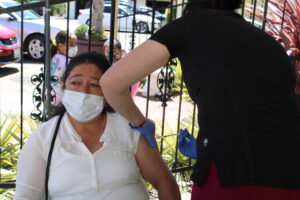
Four months into the nationwide march toward vaccination against the COVID-19 pandemic, Sonoma County is making progress on all fronts—especially when it comes to administering the shots equitably.
The good news: As of early May, more than 41 percent of the Sonoma County population was fully vaccinated against COVID-19.
The bad news: Many members of our community still are experiencing serious hesitancy about getting the vaccine and have held off from doing so, severely crippling our efforts to achieve the herd-immunity threshold of about 75 percent.
Thankfully, several Healthcare Foundation grantee organizations have been doing their part to get community members vaccinated and raise awareness of the benefits.
Alliance Medical Centers and Corazón Healdsburg have partnered to produce astonishing results. Recent statistics from Alliance indicate that they have fully vaccinated more than 11,000, and that another 13,000 have received the first of two shots at their walk-in vaccine clinics in Healdsburg and Windsor. Corazón contributed to the success of these clinics by registering Spanish-speaking patients at both sites, resulting in 55% or nearly 6,000 of the vaccinated folks being from the Latinx community.
All told, recent Sonoma County statistics noted that 72.6 percent of Healdsburg residents over the age of 16 were fully vaccinated. Healdsburg City Councilperson Ariel Kelley said this number is largely due in part to the hard work of volunteers and local medical organizations.
“We have exceeded all equity metrics throughout and continue to demonstrate the strength of community outreach by trusted messengers,” Kelley wrote on her Facebook page in late April. “This project has been exhausting but one of the most impactful experiences, thanks to our team who continues to show up (virtually) day after day.”
Healthcare Foundation grantee Alexander Valley Healthcare reports similarly positive data from Cloverdale, Geyserville, and points north.
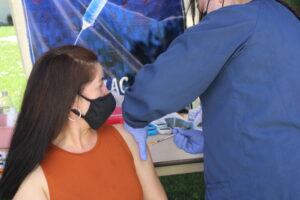
Two smaller grantee organizations, La Familia Sana and Reach for Home, have also been in the news recently for launching public, open-to-anyone, mobile or “pop-up” vaccine clinics. “At the end of the day, we need to get shots out,” said Margaret Sluyk, executive director of Reach For Home, which serves the unhoused population of northern Sonoma County. “It all comes down to shots in arms.”
In a unique collaboration encouraged by the Healthcare Foundation, Reach for Home offered a vaccine clinic on April 30 at St. Paul’s Episcopal Church in Healdsburg and administered the one-shot Johnson & Johnson vaccine to the local unhoused population–a group that had previously expressed serious mistrust of the vaccine. This pilot clinic, timed with St. Paul’s popular Friday shower ministry, resulted in 23 people choosing to get the vaccine, which Slyuk considered a huge success. Slyuk and her team offered a $25 gift card as an incentive for getting the vaccine—an approach that is proving effective across the U.S. with hesitant folks.
Reach for Home also gave out free tents, tarps and sleeping bags to attract more potential patients, along with fliers explaining what the vaccine is and its benefits.
“It’s important to meet our local unhoused population on their terms,” she said. “They are dealing with so much on a daily basis. Vaccines are not on the top of their minds. In order to make it easier for them to stay healthy and be a healthy part of the community, it’s important to bring the shot to where they are, and make it as easy as possible for them to get vaccinated.”
Reach for Home partnered with other local organizations to make the clinic happen. In addition to St. Paul’s and the Healthcare Foundation, those involved with the program were: Cheryl Fox Associates, Sonoma County Medical Associates, Healdsburg Shared Ministries and Healdsburg Rotary, who underwrote the sleeping bags and tents.
Reach for Home also partnered with St. Paul’s to provide patients with free dinner, overnight accommodations at the winter shelter, and free breakfast.
“Sometimes you feel yucky after you get the shot so we wanted to offer a safe landing space,” she said.
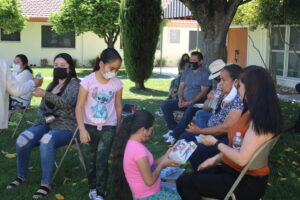
Another Healthcare Foundation grantee and grassroots organization, La Familia Sana (which translates into The Healthy Family), has organized a number of pop-up vaccine clinics throughout Northern Sonoma county.
The most recent of these clinics was in late April at the Cloverdale Family Apartments in Cloverdale, with more scheduled throughout May.
At this event, La Familia Sana booked 60 appointments and administered more than 30 vaccines—good numbers considering that a large percent of Cloverdale residents already had been vaccinated.
According to Zeke Guzman, the organization’s co-founder, the goal of these clinics is expressly to address hesitancy. Guzman said local farmworkers are particularly skeptical of the vaccine, so he and his staff line up volunteer clergy, doctors, and other counselors to be on hand to provide comfort and education.
Guzman noted that one skeptic spent 15 minutes talking to a priest and 20 minutes talking to a doctor before she was convinced the vaccine was safe enough to take.
“It comes down to community members hearing about the vaccine from people they trust,” Guzman said. “We need to not only educate the people who don’t want to take the vaccine, we need to educate the people trying to get them to take it. We need to better understand what [hesitant] people are feeling and what they are going through.”
All told, the local vaccination effort continues to exceed expectations. Healthcare Foundation grantees, with your help, are working hard to make sure that everyone who wants a vaccine gets it.
COVID VACCINE CLINICS IN NORTHERN SONOMA COUNTY AS OF MAY 12, 2020 – ALL ACCEPTING WALK-INS
Healdsburg: Healdsburg High School, 1094 Prince Street, accepting all walk-ins; Starting 5/11: Tues-Fri 9:30 – 12:30, 1:30 – 4:30
Cloverdale: Alexander Valley Healthcare Cloverdale Train Depot, Tue, Thur, Fri 9:00 – 4:00
Windsor: Town of Windsor Huerta Gym, 9291 Old Redwood Hwy, Starting 5/11: Tues-Fri: 9:30 – 12:30, 1:30 – 4:30
Windsor: Lady of Guadalupe, 8400 Old Redwood Hwy, Thurs & Fri: 12:00 – 6:00pm

Become an event volunteer, in support of community health, for our Celebrate Our Future Gala on August 28, 2021. Click HERE for volunteer opportunities and info.

Related News + Stories
Invest in Our Community
Your support is vital to our collective vision of eliminating health inequities in northern Sonoma County.
Donate
